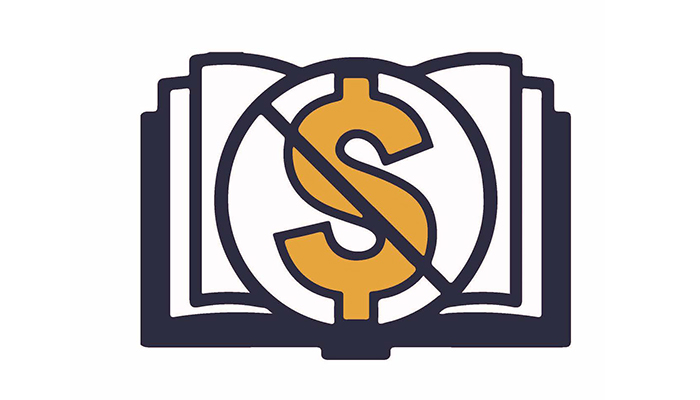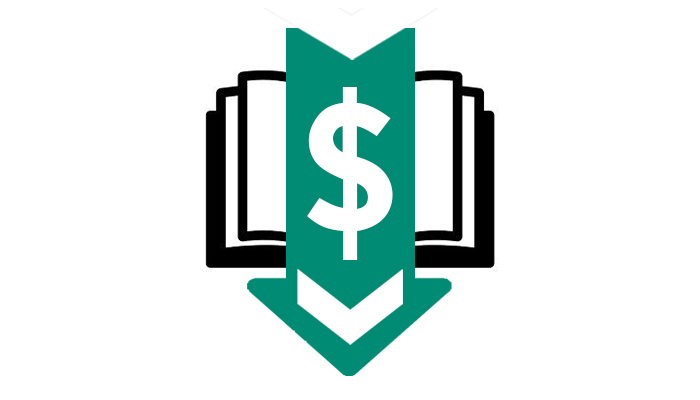Welcome to the ZTC & LTC Initiatives Portal
Objective: Make higher education more affordable without compromising quality.
Benefits: Improved course enrollment, performance, and completion rates by ensuring students have access to required materials from day one.
We are only accepting new project proposals that support the ZTC pathways currently in development.
What is ZTC and LTC?
 Zero Textbook Cost (ZTC) Initiative
Zero Textbook Cost (ZTC) Initiative
The ZTC initiative aims to ensure that students have access to courses that do not require textbook purchases, thus making education more accessible and affordable.
 Low Textbook Cost (LTC) Initiative
Low Textbook Cost (LTC) Initiative
The LTC initiative focuses on desiginating courses with textbooks that are priced lower than $50, offering students more affordable options.
How It Works

Enroll in Your Desired Course
Enroll in the course that fits your academic needs.

Access Course Materials
Check course syllabus for information on how to access course materials.
Frequently Asked Questions (FAQ's)
Courses can get the Zero Textbook Cost label if they have removed all textbook costs for students. Courses can get the Low Cost Textbook label if the textbooks cost less than $50.
Here are some ways instructors have lowered or removed textbook costs:
- No required textbook
- Textbooks are optional
- Textbooks are free for students, through lending services or online (e-books)
- Using a free, open educational resource (OER) textbook
- Providing a class set of textbooks that all students can use
- Using free readings from websites or online databases
Instructors should tell their departments if their course qualifies for either label when they are planning the schedule.
The college tries to make sure that the ZTC (Zero Textbook Cost) and LTC (Low Cost Textbook) labels in the class schedule are correct. However, sometimes things change. For example, a book might become unavailable, or an instructor might need to choose a different textbook, which could change the cost of course materials.
Sometimes, the instructor for a class might also change. New instructors have the right to choose their own textbooks, even if they cost more, and they don’t have to use the free or low-cost materials previously chosen.
Please check the textbook information for your course as the start date gets closer, especially if the instructor has changed.
The total cost of required textbooks must be less than $50. The price used is the lowest pre-tax cost available to all students at the campus bookstore. For physical books, this usually means the NEW price, because used or rental copies might not be available for everyone. If a digital rental or purchase option is available and a physical book is not required, then that digital price can be used.
You have the option to print the digital materials provided to you, and sometimes your instructor may require you to do so. If a class uses free digital materials but asks students to print some of them, it can still be labeled as Low Textbook Cost if the printing costs are expected to be under the $50 limit. However, if you choose to print materials on your own, those costs don’t count as part of this program.
Choosing to explore Open Educational Resources (OER) for your class is a great decision because it can give your students quality educational content at little or no cost. Here are some well-known platforms and collections where you can start searching for OER:
- ASCCC Curated OER Collections: OER collections for California Community Colleges, organized by subject, CSU general education requirements, Transfer Model Curricula, and C-ID, plus a summary of any gaps in OER.
- LibreTexts: A platform where faculty can find, customize, and use resources across different subjects.
- OpenStax: A nonprofit organization that provides free, peer-reviewed, openly licensed college textbooks for many introductory courses.
- OASIS (Openly Available Sources Integrated Search): A tool for finding free, peer-reviewed, openly licensed college textbooks for many introductory courses.
- Professional Networks: Colleagues in your department or professional groups may already know about OER resources that are good for your class.
When looking at resources, of course think about the quality and fit, but also look at the licensing (to make sure you can use it as you plan), and any reviews or data on how it’s been used before. Switching to OER might require some adjustments, but it can be very helpful for students by reducing costs and providing immediate access to materials!
If you plan to move your class or department towards ZTC (Zero Textbook Cost), there are funds available to support you. Please fill out the ZTC $$ Request Form to request funding.
ZTC Pathways
Associate Teacher CA (In Progress, Expected Fall 2027)
Anthropology AA-T (In Progress, Expected Fall 2026)
Acting CA (In Progress, Expected Fall 2026)
Biology: Allied Health AS (In Progress, Expected Fall 2027)
Business Entrepreneurship CA (In Progress, Expected Fall 2027)


